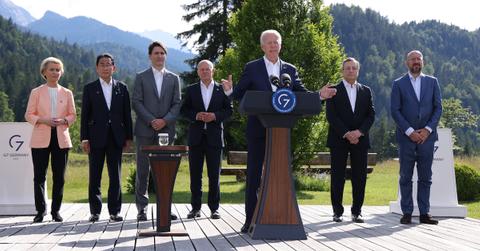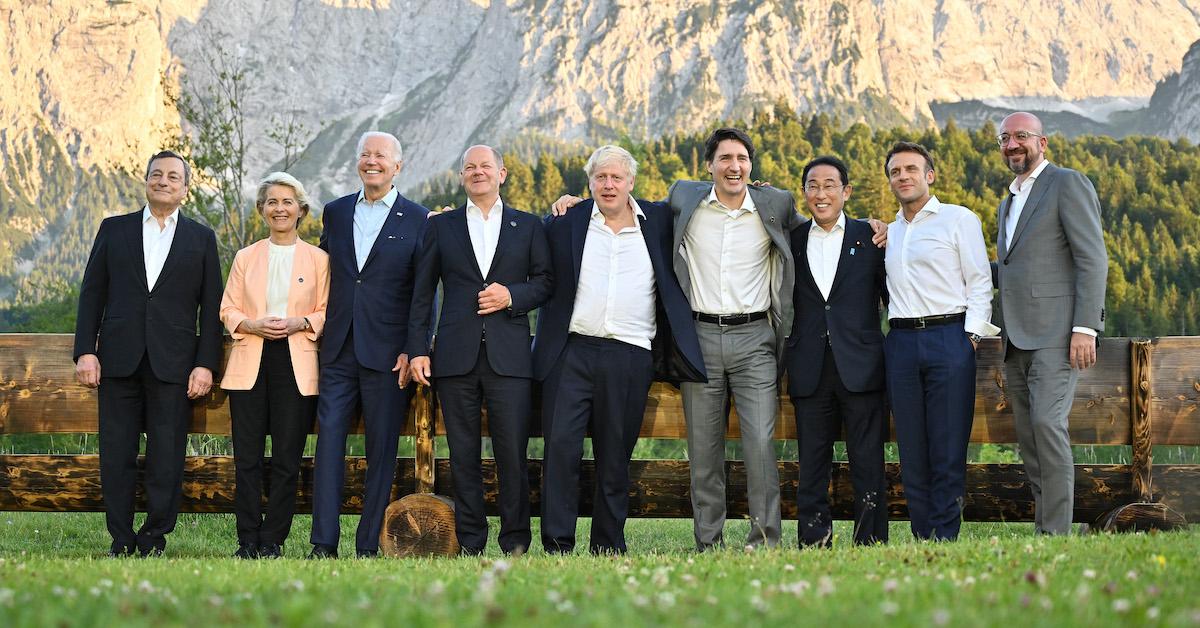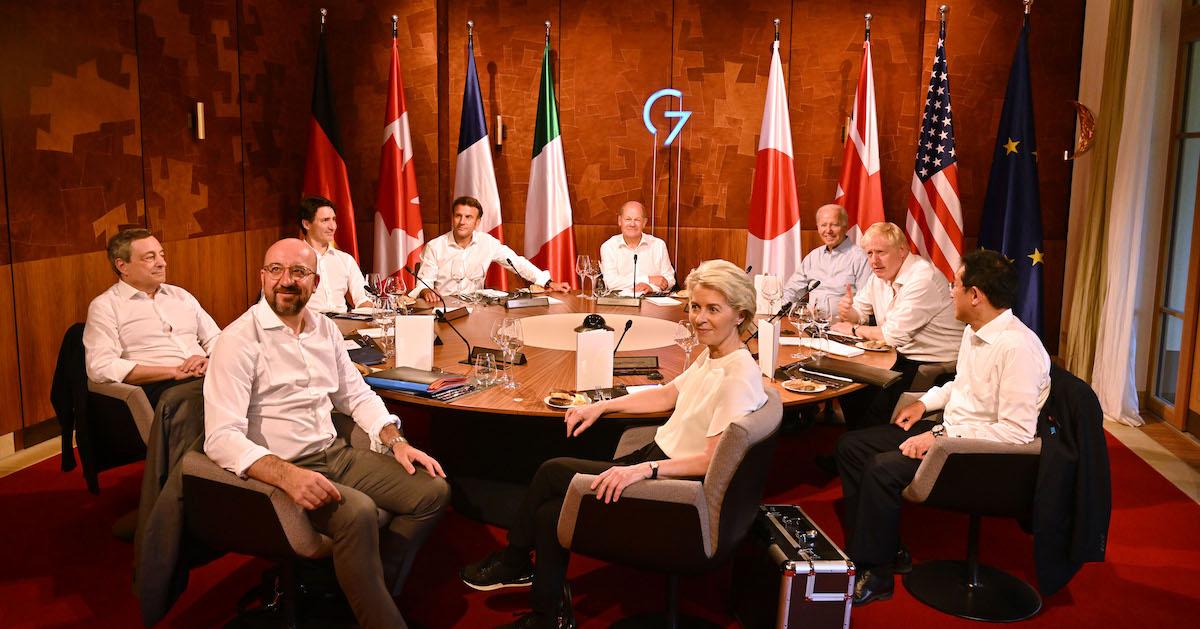G-7 World Leaders Unveil "Climate Club" at Summit — but It's Already Falling Short
Published June 29 2022, 1:01 p.m. ET

President Joe Biden speaks at the “Global Infrastructure” side event as European Union Council Commission President Ursula von der Leyen, Prime Minister of Japan Fumio Kishida, Canadian Prime Minister Justin Trudeau, German Chancellor Olaf Schulz, Prime Minister of Italy Mario Draghi, and European Union Council President Charles Michel look on during the G-7 Summit at Schloss Elmau on June 26, 2022 near Garmisch-Partenkirchen, Germany.
This week, some of the world’s most powerful leaders gathered at the G-7 Summit to discuss some of the world’s most important issues. Climate advocates were hoping the summit would bring about some serious collective action on environmental issues; however, the G-7 Climate Club that the leaders just announced is already falling short.
Keep reading for the details on the summit and the new Climate Club.
What is the G-7 Summit?

Italy’s Prime Minister Mario Draghi, European Commission President Ursula von der Leyen, U.S. President Joe Biden, Germany’s Chancellor Olaf Scholz, Britain’s Prime Minister Boris Johnson, Canada’s Prime Minister Justin Trudeau, Japanese Prime Minister Fumio Kishida, France’s President Emmanuel Macron, and European Council President Charles Michel pose for a group photo on the first day of the three-day G-7 Summit.
The G-7 is a group representing seven countries with the most “advanced economies” in the world: Canada, France, Germany, Italy, Japan, the U.K., and the U.S., as well as the European Union, according to the Government of Canada.
Every year, leaders from each member nation get together for the annual G-7 Summit. This year, the summit was held from June 26 through 28, 2022 in Elmau, Germany. There, they were joined by the leaders of Argentina, India, Indonesia, Senegal, South Africa, and Ukraine, as per the European Council.
The G-7 leaders announced a Climate Club at the 2022 summit.
At the 2022 summit, the leaders discussed a number of key international issues, including the Russo-Ukrainian War, the global economy, energy, the COVID-19 pandemic, and the climate crisis. They also announced plans to form a Climate Club by the end of 2022.
“We endorse the goals of an open and cooperative international Climate Club, and will work with partners towards establishing it by the end of 2022,” the European Council stated. The Climate Club’s goal will be “to drive urgent, ambitious, and inclusive action” in alignment with the goals of the Paris Agreement.
Commitments of the Climate Club will include cutting global GHG emissions by 43 percent by 2030, working towards a decarbonized road sector by 2030, achieving a decarbonized power sector by 2035, and phasing out coal power.

Italy’s Prime Minister Mario Draghi, European Council President Charles Michel, Canada’s Prime Minister Justin Trudeau, France’s President Emmanuel Macron, Germany’s Chancellor Olaf Scholz, European Commission President Ursula von der Leyen, U.S. President Joe Biden, Britain’s Prime Minister Boris Johnson, and Japanese Prime Minister Fumio Kishida attend a working dinner session.
“We note with concern that currently neither global ambition nor implementation is sufficient to achieve the goals of the Paris Agreement,” the G-7 leaders wrote in their communiqué. “As a response and in the run up to COP27, we commit to urgent, ambitious, and inclusive action in this decade and urge others to do so as well.”
As reported by Bloomberg, German Chancellor Olaf Scholz, who pitched the Climate Club in the first place, argued that forming a Climate Club could help prevent new trade conflicts, amidst countries enacting carbon taxes on imports; help companies that conduct business in places with stricter climate goals; and incentivize countries that are not in the G-7 to follow suit and enact stricter climate protection measures.
The communiqué is also calling upon multilateral development banks to “further strengthen ambitious climate and biodiversity action.” But why just call on these banks to do so, rather than enact executive orders and laws demanding that they do so?
Where are the concrete goals, policies, and regulations that will actually ensure all of these goals are accomplished in a timely manner? As Reuters put it, the G-7 leaders “gave few details on what [the Climate Club] would do, despite acknowledging that existing efforts did not go far enough.”
Spokespeople from various climate organizations including Greenpeace Germany and Fridays for Future argued that these policies are insufficient, via Reuters. Additionally, some activists have argued that clubs like this don’t do enough to address the less developed nations that face the brunt of the climate crisis, as noted by E&E News.
The leaders at the G-7 Summit are some of the most powerful lawmakers on the planet — if they recognize that current climate policies are not enough to fend off climate destruction, then why wouldn’t they take this Climate Club further?